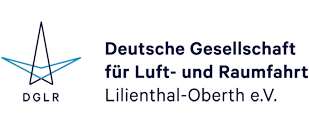DGLR-Publikationsdatenbank - Detailansicht
Autor(en):
H. Spark, P.J. González, C. Ruwisch, W. Meyer-Brügel, F.J. Silvestre
Zusammenfassung:
The Total Energy Control System (TECS) has been proposed as an alternative control concept to track both altitude and speed in longitudinal flight. In TECS, the total energy, which is the sum of kinetic and potential energy, and the distribution between those two forms of energy is controlled. A combination of throttle and elevator input overcomes some limitations of conventional proportional-integral (PI) controllers by improving model independence of the design and considering the flight mechanical coupling between altitude and speed dynamics in the formulation. The aim of this paper is to establish a comparison between both control approaches focusing on tracking precision, disturbance rejection and transient response. To this end, a case study was evaluated using the Vitesse model aircraft as testbed. Simulation results of a closed-loop numerical model of the Vitesse with both control approaches are presented. The numerical model of the Vitesse is generated using OpenVSP and VSPAero. To find the control gains for both control approaches, the same design criteria are applied for both PI- and TECS control architectures. Results showed that both control systems are able to attain the design requirements. The velocity and altitude tracking is satisfactory. However, TECS is able to track the references with lower overshoot and lower control activity.
Veranstaltung:
Deutscher Luft- und Raumfahrtkongress 2021
Verlag, Ort:
Deutsche Gesellschaft für Luft- und Raumfahrt - Lilienthal-Oberth e.V., Bonn, 2022
Medientyp:
Conference Paper
Sprache:
englisch
Format:
21,0 x 29,7 cm, 13 Seiten
URN:
urn:nbn:de:101:1-2022021611481093907158
DOI:
10.25967/550216
Stichworte zum Inhalt:
TECS, PI, Flight Control, Flight Dynamics Simulation
Verfügbarkeit:
Download
- Bitte beachten Sie die Nutzungsbedingungen dieses Dokuments: Copyright protected
Kommentar:
Zitierform:
Spark, H.; González, P.J.; et al. (2022): An Assessment of Aircraft Control via SISO Control Loops and Total Energy Control. Deutsche Gesellschaft für Luft- und Raumfahrt - Lilienthal-Oberth e.V.. (Text). https://doi.org/10.25967/550216. urn:nbn:de:101:1-2022021611481093907158.
Veröffentlicht am:
16.02.2022
